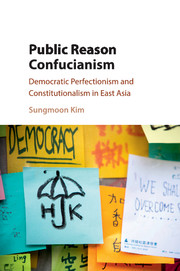Bibliography
Published online by Cambridge University Press: 05 May 2016
- Type
- Chapter
- Information
- Public Reason ConfucianismDemocratic Perfectionism and Constitutionalism in East Asia, pp. 247 - 264Publisher: Cambridge University PressPrint publication year: 2016



